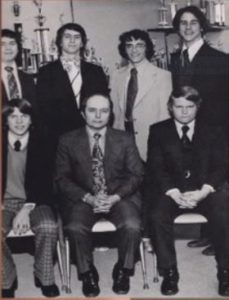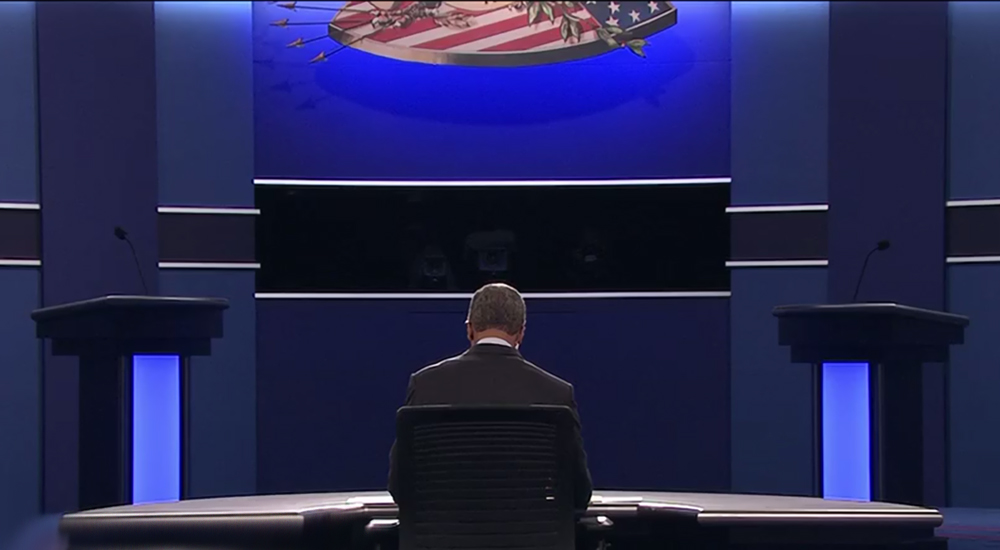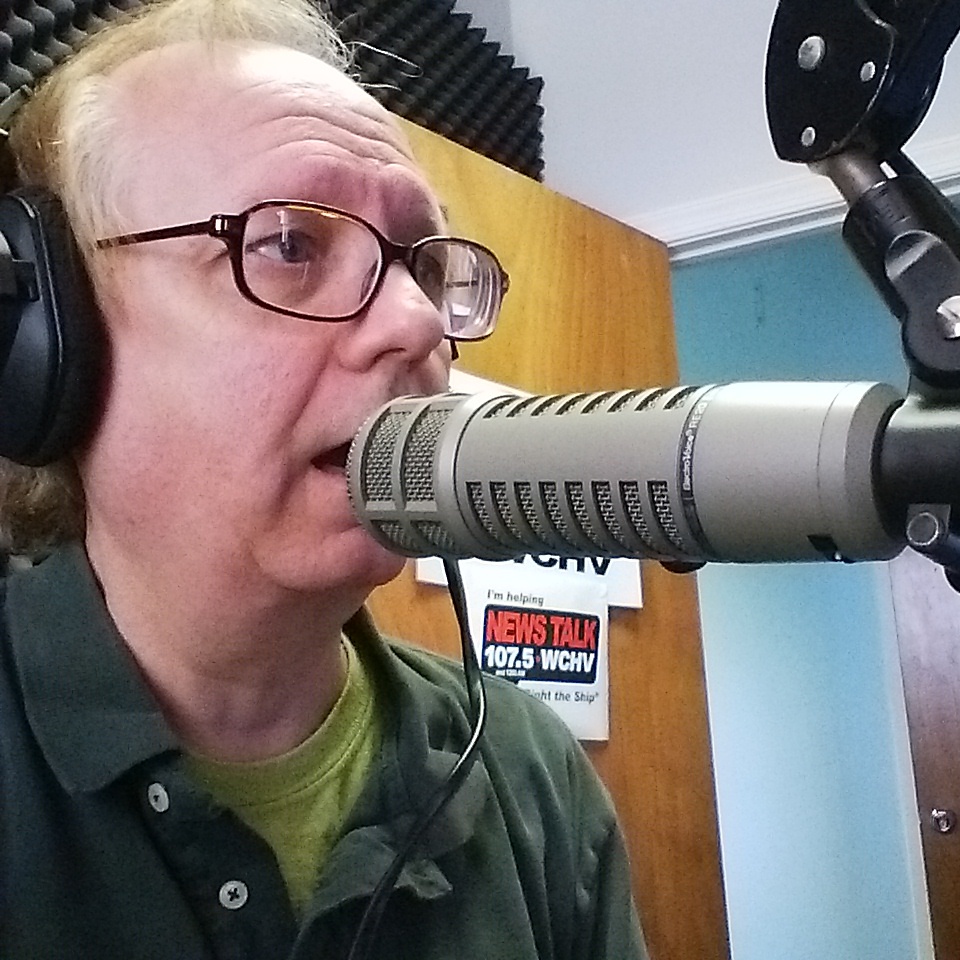Champion Debate Coach Assesses Trump-Clinton Performances
When the current, uninterrupted series of presidential debates began in 1976, the Associated Press assembled a panel of academic debate judges who would assess the encounters between President Gerald Ford and Governor Jimmy Carter.
 The panel was made up of several college debate coaches and led by the late James J. Unger of Georgetown University, with one high school coach, James M. Copeland of Marquette University High School in Milwaukee. (At the time, I was a member of Copeland’s forensics team at MUHS, which had a string of national championships under his leadership.) Copeland served as timekeeper for the Ford-Carter debates and continued to participate on the AP panel until 2000, when he retired.
The panel was made up of several college debate coaches and led by the late James J. Unger of Georgetown University, with one high school coach, James M. Copeland of Marquette University High School in Milwaukee. (At the time, I was a member of Copeland’s forensics team at MUHS, which had a string of national championships under his leadership.) Copeland served as timekeeper for the Ford-Carter debates and continued to participate on the AP panel until 2000, when he retired.
From 1987 to 2002, Copeland also was executive director of the National Forensic League (NFL, known since 2014 as the National Speech and Debate Association).
I spoke by telephone with Copeland this morning and asked for his assessment of last night’s debate between Donald Trump and Hillary Clinton. Our conversation lasted for more than 20 minutes and covered a lot of territory, so this is a condensed version.
“The whole idea behind the Associated Press panel,” he explained, was that the speech coaches would judge the debates “on the five academic standards for high school and college debate at the time and even now: clarity of argument, sufficiency of evidence that proves that argument, correctness of reasoning and avoidance of fallacy, skillfulness of refutation (which means disproving your opponent’s argument), and communication or delivery of your argument.”
Professor Unger, he said, prepared an official ballot for the AP that “we followed rigorously” but “one of the comments I always made each time we had to do this was, what we were watching were not really debates. They were press conferences, perhaps, and candidates rarely, at least in the early years, talked to each other. They simply answered the moderator’s questions or answered the questions of a panel of journalists. It was only in later years that there was more interaction between the candidates.”
Monday night’s debate, Copeland said, which “had a kind of free-flowing back-and-forth between the candidates after the moderator set up the question, was one of the closest times the presidential debates actually came to being a true debate.”
At the same time, he added, “the academic decision based on debating skills was usually not the same as the political decision that a voter might make. This was very clear in last night’s debate. Hillary Clinton overwhelmingly won the debate based on the criteria for academic debate yet, if I viewed this debate last night as a voter, it was considerably closer.”
Take the category of argument, he said. “In the first 20 or 25 minutes of the debate, Donald Trump was very clear in his argument on the trade question, and the economic effects of trade pacts on industry leaving the United States and the effect on jobs. He did a superior job in that category. He also had at least some evidence, not particularly as much as a college debater would present, but he did give specific examples of the GM factory and the Carrier factory moving to Mexico, and so on.”
That quality of argument did not last, however.
“After that, the debate began to fall apart. Hillary Clinton tried to inject in the debate a number of things that Donald Trump had said in the past that made him look flip-flop on certain issues and made him look racist on other issues and made him look sexist on other issues and, instead of following what any good debate coach in the political arena would tell their candidate (you must quickly pivot back to something you want to talk about), Trump decided to defend himself.”
Instead of the debate being about the issues that seem to be on people’s minds (immigration, taxes, jobs, ISIS), Copeland explained, “what happened was, [the debate] devolved into a quibble about, did Trump originally support the Iraq War, or did he not? Did Trump have a racist attitude when he brought up the birther issue about Barack Obama? Did Trump insult the Miss Universe candidate by calling her Miss Piggy?”
Copeland conceded that “all of these are proper questions to raise about a president and his temperament and that may be fine and good but clearly what happened is the debate, toward the end especially, focused on issues that mattered to the Clinton campaign and to Trump himself and none of those issues were any of the issues that, I think, most thoughtful voters will vote on.”
“It’s irrelevant whether Trump was for or against the Iraq War. It’s been over,” he said. “What’s more important is, what’s the difference between how the Obama administration and Secretary of State Clinton faced the ISIS issue and how Mr. Trump would face the ISIS issue.”
Topics like Trump’s tax returns and the transcripts of Clinton’s corporate speeches “are inside baseball issues that are interesting only to the political hard core, the hard right and the hard left, and to political handlers.”
At the same time, however, Copeland said, “I thought that Hillary probably did a good job by bringing up these issues, to stop Trump’s recent momentum in the polls, and to make him look like he was quibbling and kind of mean-spirited.”
Yet, “on the other hand, a thoughtful voter will look and say [to himself]: one thing I’m supposed to be judging this debate on is argument but the arguments that are being presented are really irrelevant and immaterial. Another thing I’m supposed to be judging on is hard evidence, and what this is turning into is tit-for-tat, a quibble. I’m supposed to be judging on delivery. Mrs. Clinton was clearly spoken although somewhat long-winded. Mr. Trump was irritating by interrupting constantly. Neither of them did a very good job of refuting the other’s point of view.”
Trump failed, for instance, to make a good argument on how to address the Islamic State, by explaining how the Obama administration and Secretary Clinton were “really too late to the game in getting a handle on ISIS.”
But, Copeland added, “Clinton also makes mistakes. She says she’s going to raise taxes, she’s going to have all these programs like paid leave and forgiveness of student loans and free college. Trump fails to refute any of this. He says we’re 20 billion in debt but he doesn’t tie that to anything.”
By the end of the 90 minutes, he said, the debate “just became muddy.”
If you’re trying to apply the five key academic standards that the AP panel of debate experts developed, he said, “the academic criteria really break down because neither of these candidates do a particularly good job as the debate progresses in clarifying the issues and refuting, with hard evidence, what their opponents are saying.”
As a result, a viewer is “left at the end of the debate saying Donald Trump was self-serving and entertaining and Hillary Clinton was just like she always is, sort of over-explaining but at least she was clear and seemed somewhat pleasant, so I guess she won.”
As it turns out, Copeland noted, that “is what showed up in a lot of national polls” following the debate. “Hillary won the debate largely because of Trump errors,” he concluded.
The vice presidential debate will take place at Longwood University in Farmville, Virginia, on October 4, with two participants: Senator Tim Kaine, Hillary Clinton’s running mate, and Governor Mike Pence, Donald Trump’s running mate. The next face-off between Clinton and Trump will be on October 9, at Washington University in St. Louis.
James Copeland’s commentaries on current events can be heard on KFNX-AM in Phoenix, Arizona.


